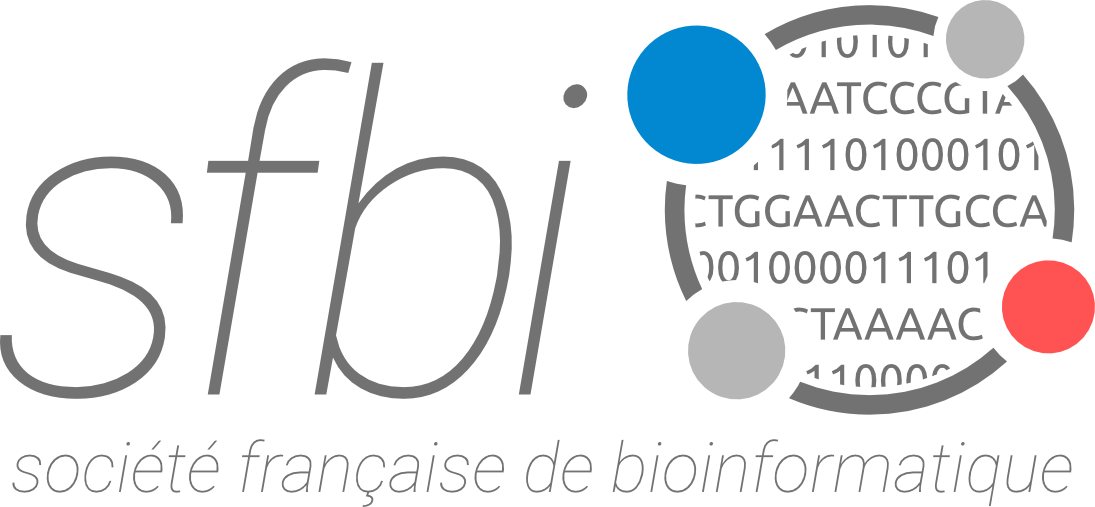Postdoc in Computational Biology
CDD · Postdoc · 12 mois Bac+8 / Doctorat, Grandes Écoles IGBMC · Illkirch (France)
Date de prise de poste : 1 janvier 2022
Mots-Clés
Computational biology
Description
About the project
Understanding Ikaros family transcription factors regulation through machine learning and biophysical modelling. The Ikaros family of transcription factors (TFs) are essential for immunity. Indeed, differential expression and activity of Ikaros family members in hematopoietic cells drive cell fate decision, differentiation and inflammation. Furthermore, gene polymorphisms and mutations of these TFs are linked to autoimmune and inflammatory diseases as well as leukemia. However, is not well understood yet how ikaros family TFs work at the molecular level to regulate transcription. It is currently unknown how different Ikaros proteins recognize their targets and what transcriptional properties could ensue. Further, the mechanisms by which Ikaros TFs recruit different chromatin remodeling complexes remain unclear. To gain a comprehensive understanding of Ikaros family regulatory function, we will integrate multi-omic sequencing data using machine learning and biophysical modeling. Using advance machine learning techniques, we aim to uncover the precise rules governing target choice and how target sequence architecture modulates gene expression. Finally, biophysical modeling will allow us to predict the evolution of target site binding and regulation during hematopoietic cell differentiation.
About you
We are looking for a highly motivated and talented postdoc fellow. You should hold a PhD in bioinformatics, computational biology or similar. Proven experience analyzing and modelling genomic data is required. Strong computational skills are expected and knowledge in machine learning methods is a plus. A strong motivation and a good capacity to work in a multidisciplinary team are also important. English is the communication language in the teams.
About us
The Molina lab is a highly interdisciplinary team focusing on building computational and biophysical models of gene regulation by integrating single-cell imaging and sequencing data. We use principle- based methods rooted in machine learning, Bayesian statistics and biophysics. The IGBMC offers exceptional computational and experimental infrastructures that allow us to develop our models and test them experimentally. The Chan-Kastner Lab has a long-standing interest in understanding the function of Ikaros proteins in hematopoiesis. The expertise of the team extends from studying the physiology of Ikaros TFs in mouse models and human leukemias to molecular functions via genomic and biochemical approaches.
The IGBMC is one of the leading biomedical research centres in Europe bringing together more than 700 researchers, PhD students and scientific staff grouped in 50 research teams and over a dozen of scientific platforms and core facilities. The IGBMC is dedicated to fundamental and applied research in life sciences, ranging from structural biology to human genetics, regulation of gene expression, biophysics and stem cells.
References
Chan/Kastner team
-
Oravecz A, Apostolov A, Polak K, Jost B, Le Gras S, Chan S*, Kastner P*. Ikaros mediates gene silencing in T cells through Polycomb repressive complex 2. Nat Commun 2015. Nov 9; 6:8823.
-
Macias-Garcia A, Heizmann B, Sellars M, Marchal P, Dali H, Pasquali JL, Muller S, Kastner P*, Chan S*. Ikaros Is a Negative Regulator of B1 Cell Development and Function. J Biol Chem 2016. Apr 22;291(17):9073-86.
-
Mastio J, Simand C, Cova G, Kastner P*, Chan S*, Kirstetter P*. Ikaros cooperates with Notch activation and antagonizes TGF signaling to promote pDC development. PLoS Genet 2018. Jul 12;14(7):e1007485.
-
Bernardi C, Maurer G, Ye T, Marchal P, Jost B, Wissler M, Maurer U, Kastner P*, Chan S*, Charvet C*. CD4+ T cells require Ikaros to inhibit their differentiation toward a pathogenic cell fate. Proc Natl Acad Sci U S A 2021. Apr 27;118 (17):e2023172118.
-
Cova C, Taroni C, Deau MC, Cai Q, Mittelheisser V, Philipps M, Jung M, Cerciat M, Le Gras S, Thibault-Carpentier C, Jost B, Carlsson L, Thornton A, Shevach E, Kirstetter P*, Kastner P*, Chan S*. Helios represses megakaryocyte priming in hematopoietic stem and progenitor cells. J Exp Med 2021. In press (DOI: 0.1084/jem.20202317).
Molina team
-
Zambrano S, Loffreda A, Carelli E, Stefanelli G, Colombo F, Bertrand E, Tacchetti C, Agresti A, Bianchi M, Molina N*, Mazza D*. First responders shape a prompt and sharp NF-kB– mediated transcriptional response to TNF-b. iScience 2020: 101529.
-
Sönmezer C, Kleinendorst R, Imanci D, Barzaghi G, Villacorta L, Schübeler D, Benes V, Molina N, Krebs A. Molecular co-occupancy identifies transcription factor binding cooperativity in vivo. Molecular Cell 2021: 81 (2) 255-267.
-
arnataro S, Riba A, Molina N*.Regulation of transcription reactivation dynamics exiting mitosis. bioRxiv 2020 (Under 2nd revision in PLoS Comp Biol).
-
Riba A, Oravecz A, Durik M, Jiménez S, Alunni A, Cerciat M, Jung M, Keime C, Keyes W, Molina N*.Cell cycle gene regulation dynamics revealed by RNA velocity and deep-learning. bioRxiv 2021 (Under 2nd revision in Nature Commun).
-
Oliveira G, Oravecz A, Kobi D, Maroquenne M, Bystricky K, Sexton T*, Molina N*.Precise measurements of chromatin diffusion dynamics by modeling using Gaussian processes. bioRxiv 2021 (Under 2nd revision in Nature Commun).
Candidature
Procédure : To apply, send a single pdf file with your CV, a cover letter describing how your expertise and experience fit in the project and the contact information of at least two references. Applications will be considered until the position is filled. Contact: Nacho Molina: nacho.molina@igbmc.fr – Susan Chan and Philippe Kastner: scpk@igbmc.fr
Date limite : 31 mars 2022
Contacts
Nacho Molina
naNOSPAMcho.molina@igbmc.fr
Offre publiée le 7 décembre 2021, affichage jusqu'au 31 mars 2022
